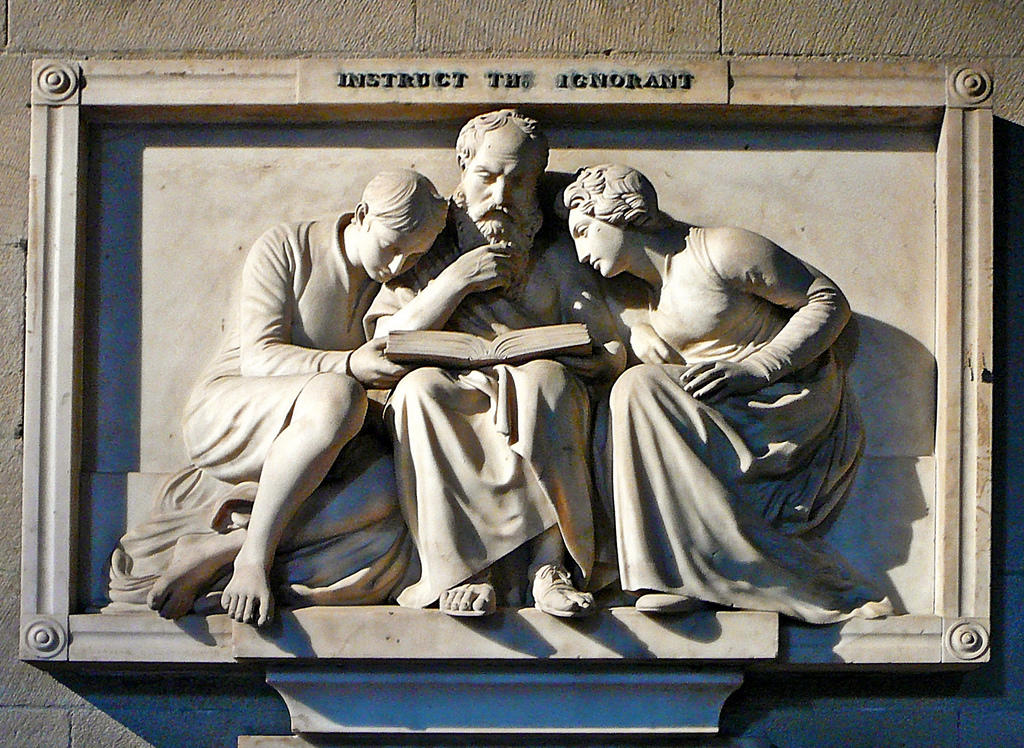Private tuition is now a vibrant industry, but for how long has it been around?
Let's take a look at the history of private tutoring from antiquity to the modern day.
While we can trace the roots of private teaching back to ancient times, it is an area that has developed considerably in recent decades.
Read on, to learn more about the past, present and future of tutoring.

Who Invented School Homework?
One of the most thought-about questions in school "Who Invented Homework?" and why?
Homework, as we know it today, is not attributed to a single inventor. Its origins can be traced back to the educational practices of various cultures and time periods.
The concept of assigning tasks to be completed outside of regular school hours has been around for centuries. Ancient Greek and Roman educational systems often included assignments that required students to study, memorize, or complete tasks at home.
In the United States, homework became more formalized in the late 19th and early 20th centuries as the educational system underwent changes and reforms. Educators like Horace Mann advocated for the expansion of public education, and the practice of assigning homework to reinforce classroom learning became more common during this period.
So, while there isn't a single inventor of homework, it evolved over time as a pedagogical tool to enhance learning and reinforce classroom instruction.
Rediscovering The Origins of Homework: Myth vs. History
The origins of homework are a topic of some debate, and there are both historical accounts and myths surrounding its development. Let's explore some of these myths and compare them to the historical facts:
Myth 1: Homework was invented by a specific individual.
- Myth: Some people attribute the invention of homework to Roberto Nevilis, an Italian educator, in the early 20th century.
- Historical Fact: Homework, in the broader sense of assigning tasks or studying outside of school, predates Roberto Nevilis by centuries. It was practiced in various forms in different cultures long before his time.
Myth 2: The purpose of homework has always been the same.
- Myth: Some assume that homework has always served the same educational purpose we associate with it today.
- Historical Fact: The purpose and form of homework have evolved over time. In ancient civilizations like Greece and Rome, homework was often about memorization and self-study, while modern homework may involve a wider range of activities.
Myth 3: Homework was universally accepted from the beginning.
- Myth: It's sometimes believed that homework was immediately embraced by all educational systems.
- Historical Fact: The acceptance and prevalence of homework varied across different cultures and time periods. In some societies, homework was widely practiced, while in others, it was less common or nonexistent.
Myth 4: Homework has always been a positive educational practice.
- Myth: Homework is often seen as a valuable educational tool today, but some assume it has always had a positive reputation.
- Historical Fact: Throughout history, attitudes toward homework have fluctuated. It has faced criticism at times, with concerns about its impact on students' well-being and family life.
The origins of homework are not neatly tied to a specific inventor or a single historical moment. Homework has evolved over centuries and has been influenced by various educational philosophies and practices. While myths may provide simplified narratives, the true history of homework is complex and multifaceted, reflecting the diverse approaches to education across cultures and eras.
Who invented Tutoring?
Tutoring, or the practice of providing individualized instruction to students, does not have a single inventor. Instead, it has a long history that dates back to ancient civilizations where scholars, teachers, or mentors would provide one-on-one instruction to individuals seeking to learn specific subjects or skills.
Here are a few historical points related to the evolution of tutoring:
- Ancient Greece: In ancient Greece, prominent philosophers like Socrates, Plato, and Aristotle are known to have engaged in tutoring. Socrates, for example, used the Socratic method, a form of dialogue, to teach his students individually, focusing on critical thinking and questioning.
- Tutors in Noble Families: Throughout history, tutors were often employed by noble families to educate their children. These tutors would provide personalized education in subjects like mathematics, philosophy, and the arts.
- Medieval and Renaissance Periods: During the Middle Ages and the Renaissance, individualized education continued to be prominent, especially among the nobility. Tutors played a crucial role in shaping the education of young scholars, artists, and thinkers of the time.
- Modern Tutoring: Tutoring as we know it today has evolved with changes in educational systems. In modern times, tutoring is not limited to the elite and is widely used to help students of all ages and backgrounds excel in their studies. This includes private tutoring, online tutoring, and peer tutoring.
So, tutoring has a long and diverse history, with its roots in the personalized instruction provided by scholars, mentors, and educators throughout different periods of human civilization. It has adapted and evolved over time to meet the educational needs of individuals and societies.
Personal Tutors, from Antiquity to the Middle Ages
Today, private tutors offer many benefits, delivering a supporting role: They supplement the education provided in schools and other academic establishments, public and private, by consolidating or deepening knowledge and skills first learned in schools.
Home tuition has grown greatly since the 1970s-1980s, but if we want to understand the history of private lessons since antiquity, we need to consider a completely different context: At that time, the school system as we know it today did not exist.
From antiquity to the Middle Ages, almost no schools, as we would recognise them, existed.
It follows that home tutoring, as we understand it today - complementary to school education - did not exist either.
At the time, almost no one went to school, so no-one had a home tutor to help enrich the knowledge gained in school.
It would be more accurate to say that education was exclusively reserved for a small elite. In the Western world, the personal tutors of the day were the philosophers, the sophists, and other teachers of rhetoric.
Aristotle, for example, was the private digital tutors of Alexander the Great. During the Roman era, Seneca was the tutor of the tyrannical emperor Nero.
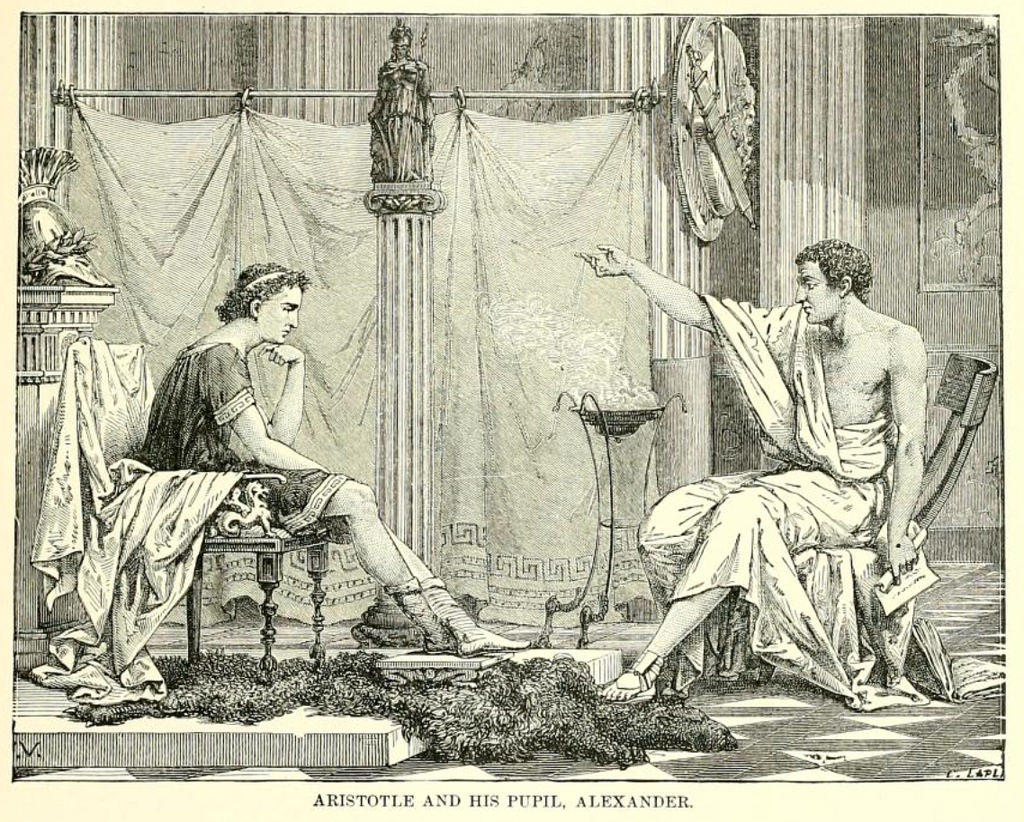
Educational systems in antiquity can broadly be summarised in three points:
- The vast majority did not benefit from any educational system
- Children of the elites also did not go to school
- Instead, they were trained with the help of private tutors, sometimes called 'preceptors'
Teachers of old did not just occupy the more narrow modern sense of the term. Their role was also to educate their students in a broader sense. A tutor was not merely someone who imparted knowledge to his pupils; he was also responsible for teaching his charges about life, and how to conduct themselves in society and the wider world.
It was sometimes said that a tutor was a sculptor of souls; an educator and not just a teacher, for it was often the tutor, not the parent, who took care of the child's education.
But what can we say today about the future of private tuition?
Home Tutoring Predate Schools
There were private tutors long before the first schools
The role and function of private lessons today can seem somewhat counter-intuitive, given their historical context.
Private teachers were sages, who educated young nobles throughout history.
How, then, was the rest of the population educated?
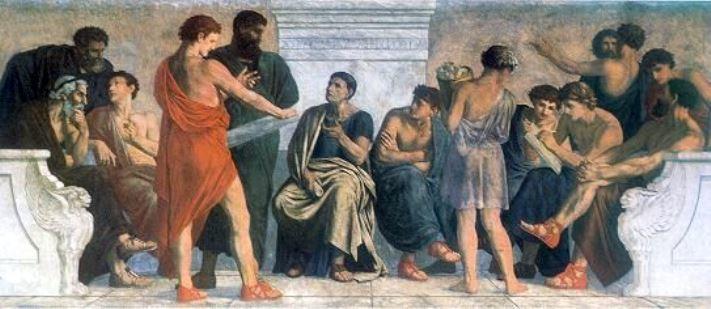
In fact, the average 'commoner' didn't receive any formal instruction at school, nor any private tuition from a tutor. It was the parents who taught their children, usually in the form of the profession they themselves practised.
As such, the children of peasants were trained at a young age in the skills needed for farming. Children of craftsmen, too, would have learned their parents' trade at a young age. Neither groups would generally have had the means available to pay private tuition fees.
A popular notion has it that Charlemagne first came up with the idea of the school, an idea popularised by the singer France Gall.
This is largely a myth, however while Charlemagne did not invent the school in the current understanding of the concept, he did contribute to the development of the school system, in order to train the officials and aristocrats of his empire.
This school was of course not open to all, but only to the elites. The first of these schools was created at Aachen Palace, the capital of Charlemagne's kingdom.
At the time, teaching was structured around seven 'liberal arts', or subjects. These seven topics were divided into two groups: the Quadrivium and the Trivium.
More schools, based on the same principles, followed, enabling many children of the elite to learn the knowledge and skills necessary for their roles, in collective educational establishments, rather than with individual teachers.
It was not until the late Middle Ages that schools began to appear in larger numbers and to open up education to the wider population.
It was in the 12th century that the first revolution in schooling occurred.
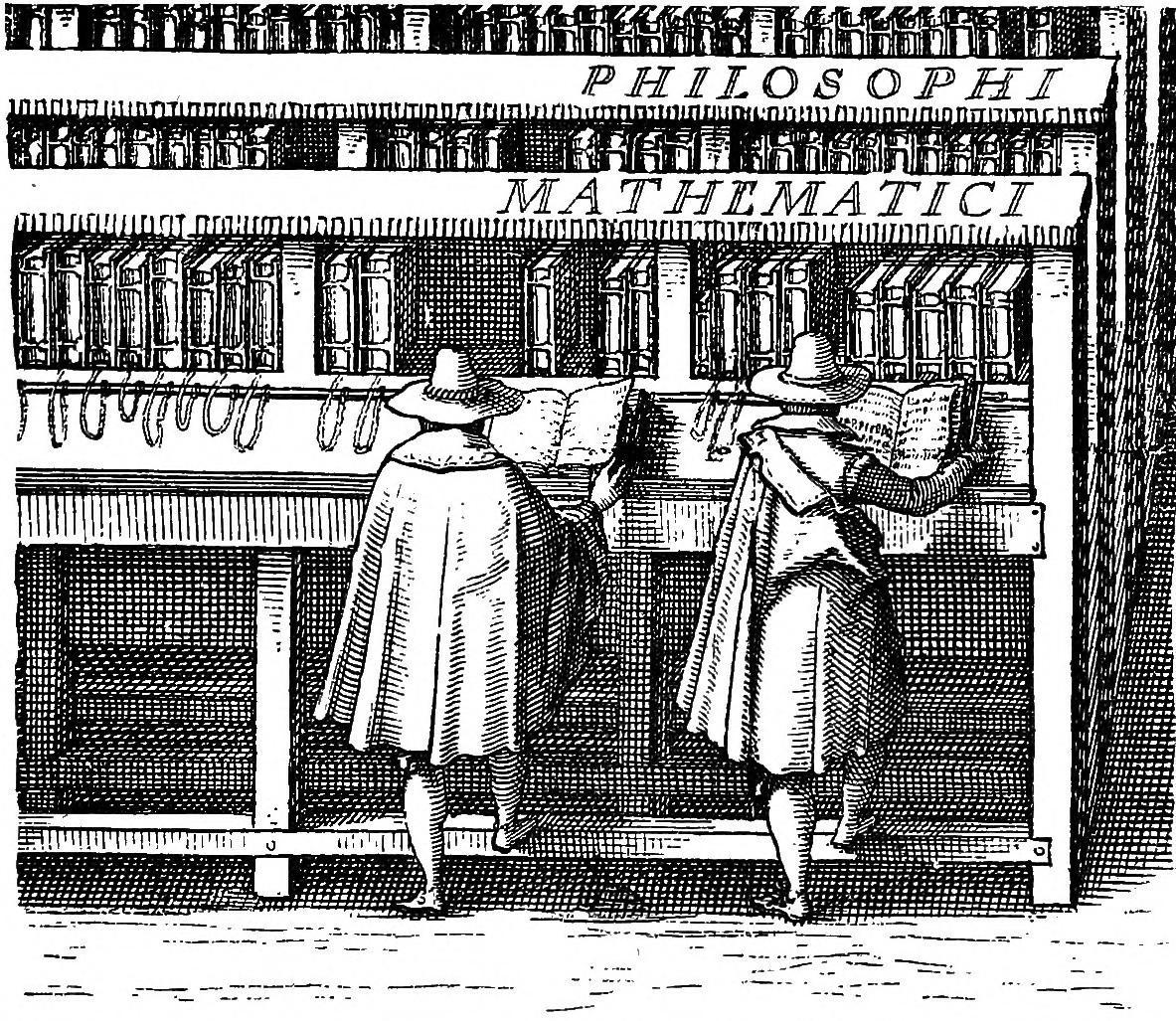
The Renaissance of the late XIIth century saw, for the first time in history, widespread schooling develop throughout the countries of Europe.
It was at this time that the first universities appeared. In the cities, the first colleges began to make their appearance. It was during this period, too, that we began to rediscover the great minds of Greek and Roman antiquity with Oxford tutors and Bristol tutors.
But even as scholastic education began to develop within religious establishments and colleges, it was still beyond the reach of the vast majority.
Despite these developments, private lessons remained, at this time, the preserve of the rich. Apprenticeships were the main way for young people to enter trades.

The Emergence of Universal Education
During the Tudor period, grammar schools were reorganised, and a new national system of "free grammar schools" was instituted in England.
These schools, in theory open to all, offered free tuition to those who were not able to pay fees. Most children from poor families, however, did not attend, as their labour was too economically important to their families to allow them the time off.
In the Elizabethan period, 'parish' apprenticeships, under the Poor Law, became a way of providing education to poor, illegitimate and orphaned children alongside the existing system of skilled apprenticeships, previously only available to children of slightly more well-off backgrounds. These included skills like farm labouring, brick-making and menial household service.
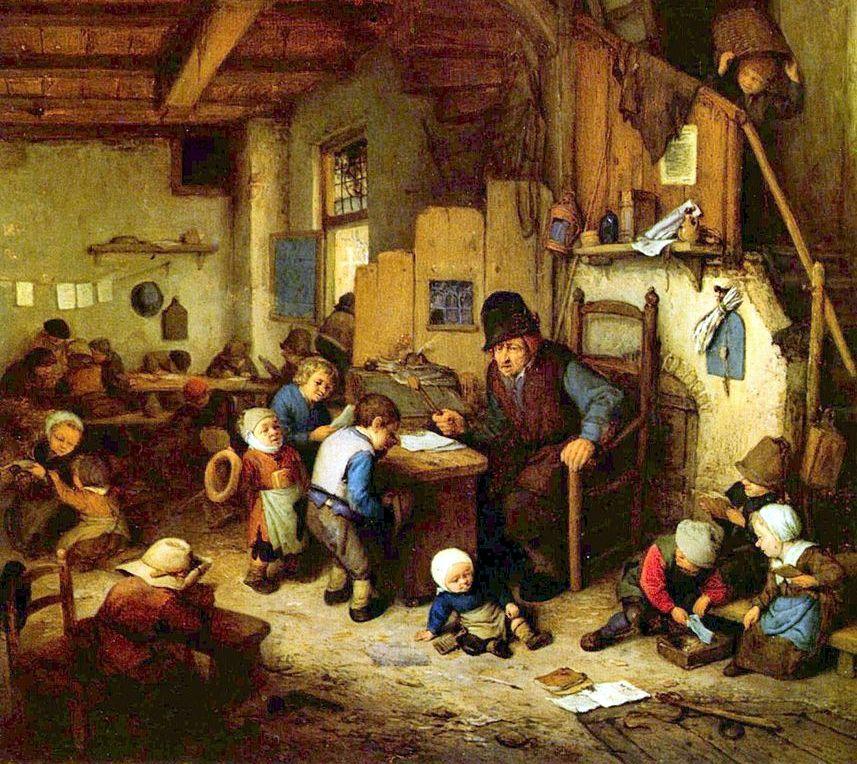
In 1818, John Pounds, the ‘crippled cobbler’, set up and began teaching at children of poor families at ‘ragged schools’, dispensing free lessons in reading, writing and arithmetic.
In 1833, the British state involved itself for the first time in education, in England and Wales: Parliament voted to allocate funds for the construction of schools for poor children. It wasn’t until the Elementary Education Act of 1880 that compulsory attendance was instituted, from the age of 5 until 10 years.
Compulsory Education and Higher Living Standards
The Fisher Education Act of 1918 made secondary education compulsory until the age of 14, and placed the responsibility for secondary education in the hands of the state. Compulsory school leaving age raised to the age of 15 by the Education Act of 1944.
The following year, sweeping reforms transformed the British economy, which saw the nationalisation of industries, increased taxes and the creation of a welfare state, with pensions, social security and a national health service.
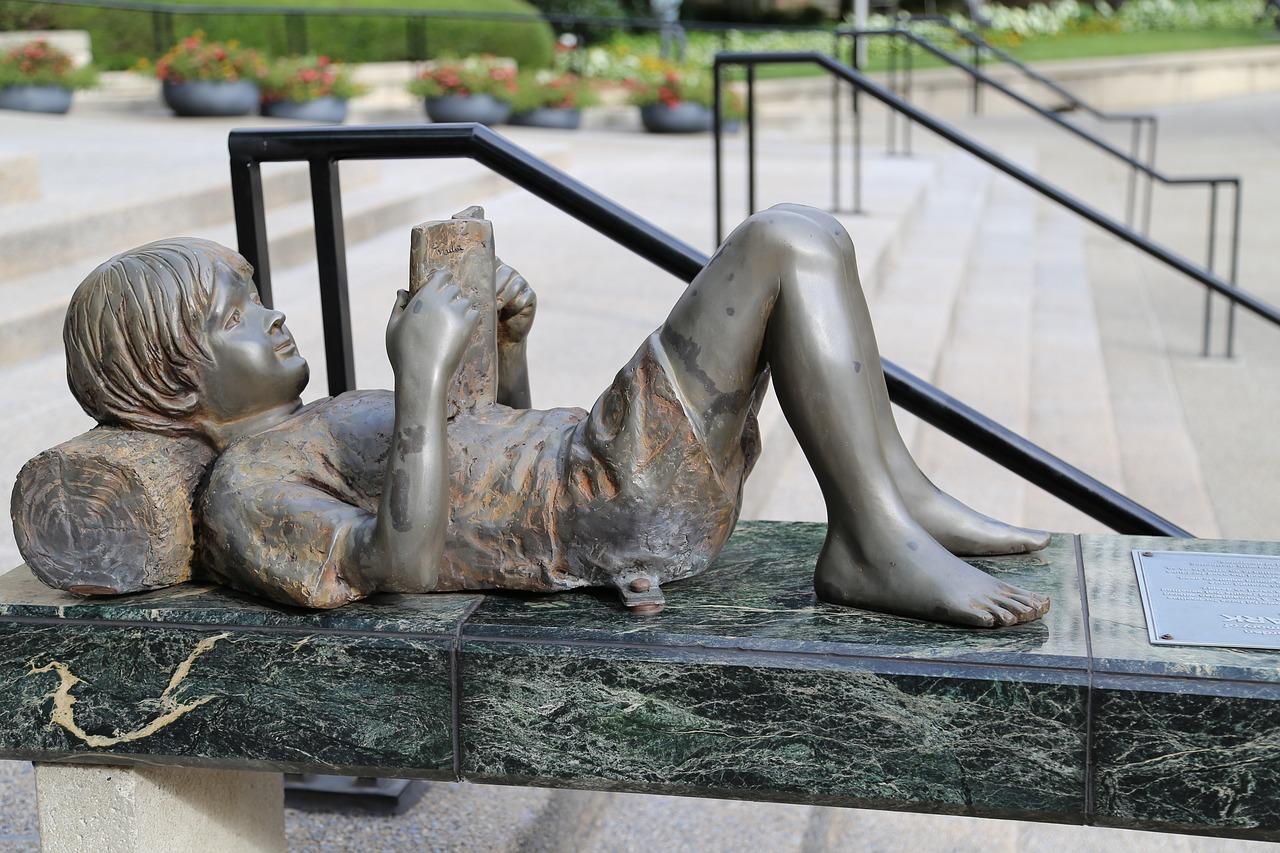
During the next 15 years, Britain experienced a period of rapid economic growth, following recovery from the Second World War. The economy went from strength to strength. The 1950s and 1960s were a prosperous period, during which unemployment averaged at only 2%. Britons became more family-centred and leisure activities began to flourish.
These factors: Free education for all and higher standards of living giving rise to larger amounts of disposable income, provided the conditions in which private tuition became not only possible, but highly desirable.
Private Tutors: A Contemporary Phenomenon
Tutors in the contemporary sense are a very recent phenomenon.
It's difficult to tell the history of private lessons for a simple reason: Until the 20th century, private lessons in the modern sense did not exist.
Private lessons can be traced back to antiquity, but in their ancient form, they bore little in common with what we know today.
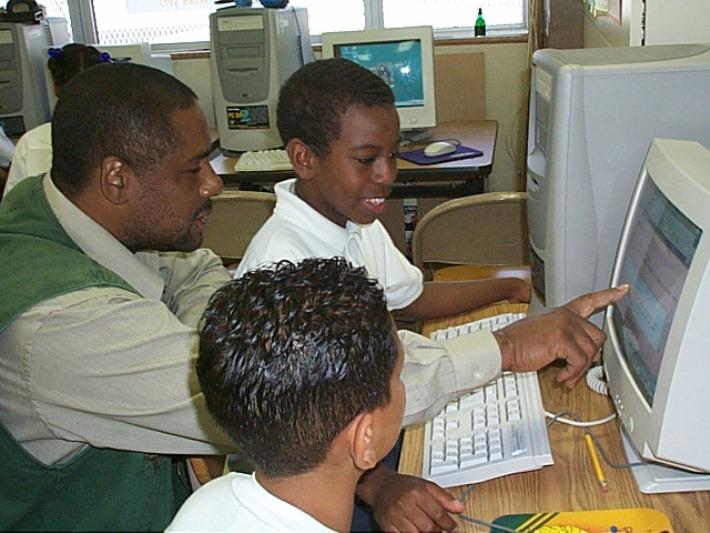
There is a practical reason for the recent emergence of private tuition: Private lessons are usually in the form of personalised courses for a single individual.
They involve the transfer of knowledge and skills from one teacher to a single student. A given teacher will expect remuneration commensurate with the extent of her knowledge and experience, accumulated over the course of years.
Until very recently, only very few could afford to pay for private lessons. For this reason, they only became a real force in education in the second half of the twentieth century.
The Private Tuition Boom
If the mid -twentieth century was when private lessons really took off, then last 20 years are when it became a really widespread phenomenon. If you are over 40, you are unlikely never to have had private lessons. Those under 20, on the other hand, are much more likely to have been privately tutored at least once.
Equally, take a look at the state of private tuition on a global scale.

There are three main reasons for this:
- Social mobility is slowing: While politicians try to reverse the current trend of growing inequality and social stratification, it persists. It is increasingly difficult, for example, for a child of workers to acquire a managerial position. This is due to many reasons, but not least that many developed countries have been plunged into economic crisis. One could also contend that the predominant neoliberal political doctrine of the last few decades tends to legitimise and exacerbate inequality.
- Parents are increasingly concerned about the kind of future their children can expect. They are aware of the economic crisis affecting the West, and of mass unemployment. To give their children the tools for a successful life, parents often look to private lessons.
- The school system appears, rightly or wrongly, to be less and less reliable in delivering an effective and high-quality education. This decreasing confidence in formal educational systems means many are looking for alternatives: Private schools, for those who have the means, and private lessons.
There is another reason for the impressive development of private lessons over the past few years: The diversification of private tuition.
In the past, a private lesson consisted of learning support for school subjects. Private lessons often comprised of English, foreign languages, history, mathematics etc. Private lessons were restricted to school subjects.
For several years now, private lessons have gradually diversified. Today, you can take private lessons in yoga, sports, piano, violin, guitar, cooking, coaching and more.
Online Tutoring take over from Traditional Tutoring Agencies
The concept of one to one tuition has been extended to topics that were excluded just a few years ago. Inevitably, this expansion in the overall concept of private tutoring has had a profound impact on the development of the tutoring market.
Much of this tremendous growth is thanks to the spread of internet connectivity and communication services

This allows private lessons to become a genuine exchange between teachers and students.
On Superprof, you can now find a teacher for just about anything: Yoga, sports, English, French, mathematics, piano, violin, cooking, philosophy and more.
Do you have a talent, skills or experience? Why not sign up to Superprof free and give lessons online?
Are you looking for private lessons? Choose from hundreds or thousands - depending on the topic - of proficient teachers registered on the platform!
The development of communication platforms has contributed greatly to the development of private lessons and tutors UK. As a result, private tuition in the UK is worth an estimated £2 billion per year.
Following its origins as training for children of the elite, private tutoring assumed its present form following the rise in living standards in the latter half of the twentieth century. Recently, parents' concerns for their children’s education coupled with the diversification and increased affordability of private lessons has led to a period of rapid growth, as well as a trend towards online tutoring and digital forms of education.
Résumer avec l'IA :

